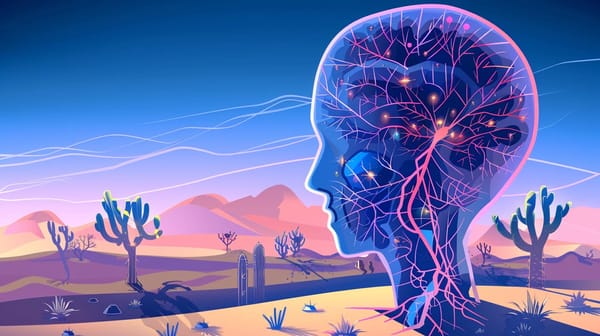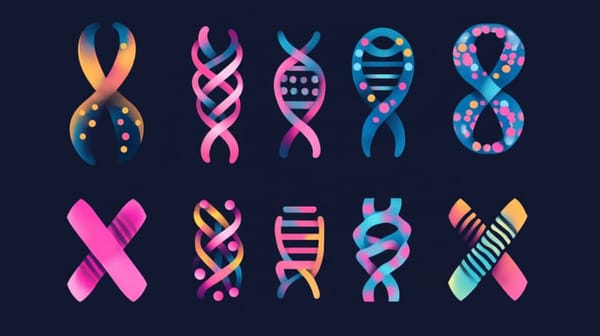Do you know anyone that suffers from seizures? If someone suffers from non-acute-caused seizures, meaning it’s not from a disease or specific condition like low blood sugar or stress, then they’re suffering from epilepsy. When someone gets diagnosed with epilepsy, they are given a few options by doctors. Not always the best of news, but there are anti-seizure medications, dietary approaches, and surgical interventions. It’s a bit of a gamble because one size fits all doesn’t work for everyone, and even when it does work, it’s usually a remission type of healing and not an actual cure for the problem.
I want to talk about dry fasting and seizures, based on a paper from 1930 that seems to have been lost to the ages. If I were a conspiracy enthusiast, I would go as far as to say, that it was hidden from the world's eyes so that people didn’t know the power of dehydration when harnessed for healing. Although I’m sure liabilities and worries about the dangers of dehydration played a pretty big role, I think it’s insane that our understanding of dehydration is so outdated and that we haven’t given it more attention. The paper showed 100% symptomatic relief for crying out loud! In this paper: “The dehydration treatment of epilepsy”, Fay states that one of the most common factors among epilepsy patients was the accumulation of subarachnoid fluid and cortical edema. Let’s talk about it.
Nowadays, we know that cerebral spinal fluid abnormalities or cortical edema are not seen as common factors. Epilepsy is viewed as directly related to chronic changes in the brain's electrical activity. Maybe Fay was guilty of trying to correlate dehydration too aggressively with a theory that would make it make more sense. It’s a pretty easy mistake to make, and we’ve all been guilty of it. I’m sure you’ve heard of people saying that cold temperatures can cause you to catch a cold. That’s a faulty assumption because a cold is caused by viruses and not cold temperatures. Now does a cold temperature stimulate viruses? That’s a different discussion. Dehydration lowers the cerebrospinal fluid volume, which would give a lot of relief to the cerebral cortex and it makes sense to try to explain it this way. How much was dehydration helping? Well, let’s take a look at his data.
Data from 22 patients put on periods of dehydration
Fay followed and analyzed 22 epileptic patients for various lengths, some up to 30 months. Most of them are children, which is a little weird, but good to know. There’s a mention of a study by Bauer that tested a ketogenic diet on infants that had epilepsy, and the diet was able to provide relief for approximately 35% of the infants, which is better than nothing - but not that great. Fay states that when these same infants were placed on fluid limitation and dehydration for one year, he was able to establish 100% symptomatic relief in his group. 100%?!
Symptomatic relief doesn’t mean curing. But it was a way to give the infants full remission, without the need for surgery and medication. I mean who wants to give infants pharmaceuticals? Even though there are anti-seizure medications that are prescribed for infants, they may have horrible side effects like sedation and cognitive impairment… Yikes.
So what did the diet look like?
Well first of all he took only the most severe cases those having three or more seizures a day, and put them on this dehydration period. They were given a fluid intake of 40 ounces the first day, including milk and water. Two bowls of cereal, a slice of bran bread and butter, and a salad with lemon were given once a day. Then the fluid intake was cut down to 32 ounces the next day, then 24 ounces, then 16 ounces.
The children rapidly lost weight even though they were eating (hint hint, fat burn to create additional water - we know this). They would try to maintain between 6-24 ounces a day. In all cases of them having between 3-16 seizures a day, they were reduced to 0 seizures. 25 of the cases were still under observation after one full year and were still free from seizures. Amazing! Fay concluded with the following statement:
“I am convinced that the use of the ketogenic diet is incomplete, both in its hypothesis and in its execution as a relief for epilepsy. The ketogenic diet is cumbersome, burdensome, and necessitates altogether too much discomfort for the amount of good that follows its use. Limiting diet and fluid intake at the same time affords the easiest and most complete relief from symptoms and attacks.”
Dehydration vs Ketosis for Epilepsy
Amazing insights by McQuarrie:
Now these guys are my kind of people!! McQuarrie states that he believes the effectiveness of fasting and the ketogenic diet is not so much to the presence of ketosis per se but much more to the dehydrating effect they both produce! I too believe that there is a big correlation between the effectiveness of fasting with a dehydrating effect on the body. Do you ever notice how when you water fast for over 10 days, you start to hate the taste of water? Do you need to supplement electrolytes, or else your water levels drop drastically? Yes - I think there’s a big correlation to dehydration or at least fluid loss which is a big component of both dry AND water fasting. Is your mind blown yet?
It was symptomatic relief but not a cure
It’s important to remember that the diet needs to be continued for symptom relief to continue, as when fluids were given again in large quantities, the issues would return. This means that it was mainly symptomatic relief. However, being able to put seizures into remission gives the child the opportunity to grow up and develop with (hopefully) less brain damage.
Also, the kids were fed carbs during the experiment, and a lot of them! I would have limited carbs a little more and focus on complex ones and lower glycemic ones. Maybe more berries, less bread. But at the same time that is a difficult call, considering that carbohydrates are carbon building blocks that growing children most likely require. At no point do I claim to have all the answers.
What does this mean for families suffering with epilepsy?
If you or your child is suffering from this illness, you’ve no doubt been told all about the ketogenic diet. It’s pretty wild that it was so popular already in the 1930’s. But it’s a little sad to think of it as simply a remission and not a cure. Still, I’ll take fluid restriction over-pumping the body with anti-seizure medication any day. And sometimes even medications don’t work!! Yikes.
Now what about dry fasting and epilepsy? If a ketogenic diet and dehydration played such a powerful role in preventing seizures, wouldn’t dry fasting be even more powerful? I think there’s a case for this line of thinking. One of the most powerful aspects of a dry fast is how quickly and how powerfully it stimulates stem cell regeneration. If initial dehydration is the precursor for autophagy, the refeed after a dry fast is the holy grail of stem cell healing. If stem cells can’t fix it, I doubt there’s much that can. Personally, I think that it’s something that you, as someone directly affected by epilepsy, have a duty to explore. If you have children with epilepsy, they need all the help they can get. And You as the parent must first brave these waters and learn about dry fasting. If you’re really scared about this topic then I advise you to dig into research about Ramadan, a religious daily dry fast that has been practiced for thousands of years in the Muslim religion. Explore it and let me know how it goes! GodSpeed.
The dehydration treatment of epilepsy
https://digitalcommons.unmc.edu/mdtheses/181/




